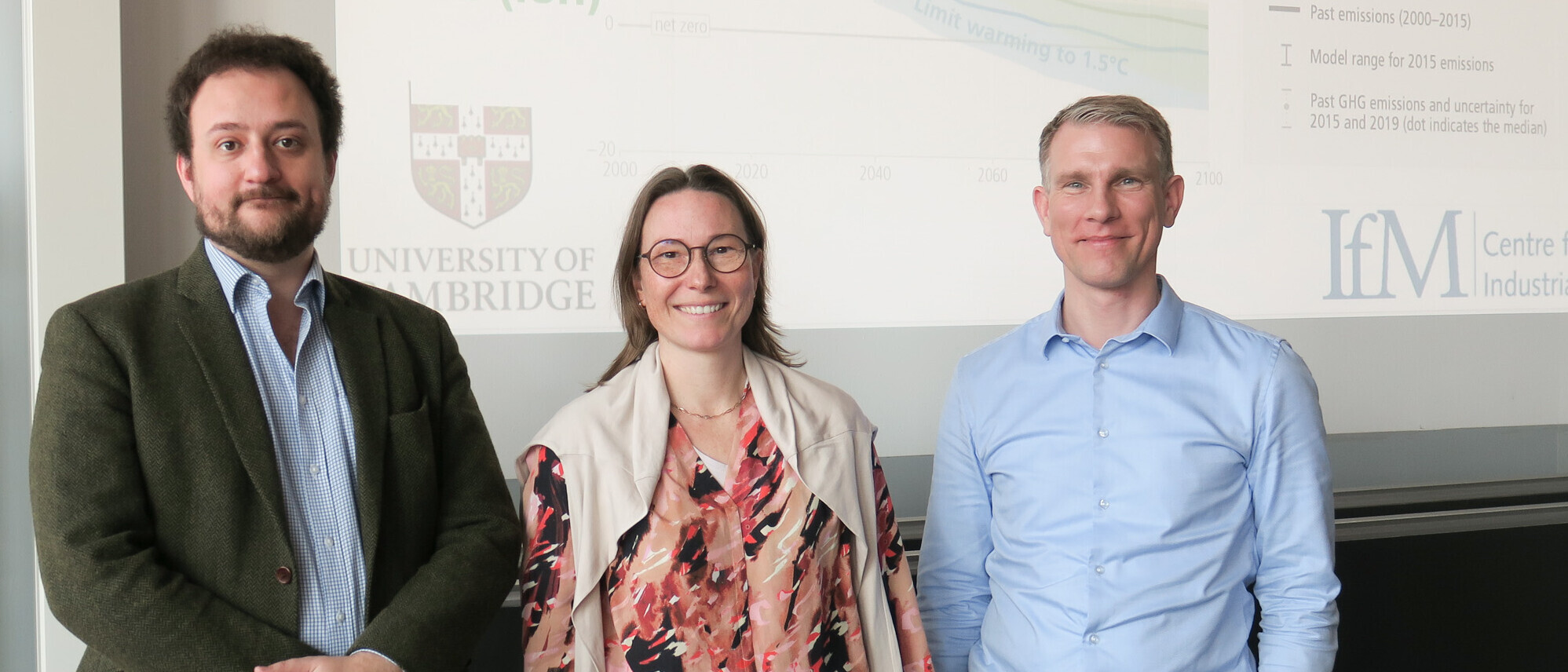The common theory for change and transformation is: «Improve – Invest – Innovate.» Saul Jones, Researcher at the University of Cambridge, presented a completely different approach to students in his guest lecture «I before AI» in the «Ethics and Sustainability» module of Industrial Engineering: «Ask yourselves: How can we make the most of what we have if no new material, no new technology, and no new software is developed?» Dr Jones' approach: The work on a better sustainability performance starts with the existing technologies and the data that already exists. Only in this way are improvements and thus changes possible on a large scale in a short time.
Recognizing Patterns from Seemingly Simple Data
Saul Jones is the Lead Researcher in Industrial Energy and Material Sustainability at the Centre for Industrial Sustainability at the University of Cambridge. With British wit and catchy slogans, he presented various projects to students in Rapperswil-Jona and St.Gallen, showing step by step how astonishing results can be achieved in a very short time. He illustrated how a company transformed its production into a zero-waste cycle, where former waste products now even have value. Another company was able to save significant amounts of packaging material, while others drastically reduced their energy consumption with simple adjustments.
As a basis for such changes, Jones and his team use the data that can be found in every company. He vividly demonstrated to the students how even seemingly few, simple data can be read, visually processed, and show patterns in new contexts. «Don't trust round numbers or <received wisdom>, put the data in the context of practice, question common beliefs. Test if you can test, and always ask <what were we expecting>» he advised the students. And he encouraged them to dare to ask simple questions. This is the advantage of outsiders: No one expects the students to know the manufacturing processes of the company in detail, but they would develop an eye to recognize blind spots in a complex system.
Connecting Insights to OST Student Projects
Building on this visit, future student industrial projects will try to apply these learnings and best practices in the context of Swiss manufacturing companies, under the supervision of Katharina Luban (Supply Chain Management) and André Podleisek (Sustainability). This is how new findings from research and regional industry are linked.

